#wu bodu
Text
Zodiac: Twelve Souls — 32

< PREV | ARCHIVE | NEXT >
Steal Away
“How do you know my name? Who are you?”
news
— New translated chapter posted.
— The burn-out is real, ahaha. Time for a break. I will probably continue to blog/reblog things in the meantime, but the main project for Z12 translation will be on pause through December. Hoping to resume weekly updates afterwards. Take care of yourselves, everyone. See you all in the new year!
— Next update target: January 3, 2023
notes
— Who Bodu:
Hehe. Couldn’t help myself.
As an extra layer of bilingual humor, “who” sounds quite like 虎 (hǔ - tiger).
(And nah, there wasn’t originally a joke here. But so many jokes get lost in translation! I have to seize every chance to even the score!)
— Makes no sense:
Qitian’s original comment is shown below.
真是莫名其妙……
This really makes no sense…!
Tu Fei uses the same phrase when he learns Baxia’s name/nickname way back in Chapter 3:
真是个莫名其妙的名字
What an indescribable name.
As you can likely guess, this idiom is used to describe something baffling or inexplicable. A more literal interpretation might be something like:
mò míng qí miào
莫名其妙
unable to express its profound mystery
— People below / those below:
A pretty literal translation of 底下(的)人.
Lichong likely uses this phrase to refer to subordinates/underlings; i.e., those below [on the hierarchy].
< PREV | ARCHIVE | NEXT >
1 note
·
View note
Text
An au inspired by a fic where m!lloyd slayed himself but a while later(multiple months or even years) the ninjas,koko,wu,garmadon ans even chen keep glancing and noticing accidentally a certain blond boy with white hair,he looks like lloyd apart from the white in his hair, the pointy teeth sticking out of the left of his mouth. same initials:L.M.G(lloyd Montgomery garmadon) but they learn later on his name and last name(obv) aren't the same but starts the same.
resuscited lloyd design thoughs
i thought maybe that the new bodu lloyd would have longer hair, two white lock of hair on the side of his head, he would be a bit taller, light green or hazel eyes, a tan skin, prob freckles idk, ofc the teeth sticking out whos rather pointy (a canin) on the left, brown eye brows n all,prob wear like a hoodie jacket thing where its white at the top and fades to green with either y2k or grunge designs or we could even make him a scene guy or a dragon design on it, its slightly opened showing a black shirt or idk a sweater, oversized pants like the cool ones with designs n all with like sneakers,converse or those black shoes with the thick bottom,prob nail polish but who cares the thing is,
he has a scar on his neck
(in the fic if i remember lloyd / his throat n other things i think)
what would his name be tho like Lewis?? Louis? Loy?
12 notes
·
View notes
Text
Locating yourself in place
o In what ways are you 'local' to this place?
Firstly, I will say that I’m a local to LiangXi District, which is the city center part of Wuxi. When I was a kid, I lived in Wuxi, and I have many primary school and secondary school classmates here, many of us are keeping in touch with each other, at the same time, my family lives in Wuxi, too.
My grandmother used to cook a lot of local food for me, and I like the local food here, Wuxi people like to eat sweet food and a type of food called XiaoLongBao. I like to eat sweet very much, I will add some sugar to the dishes, too. At the same time, the resident address on my ID card is also in LiangXi District, so I can stay here without any concern about travelling restrictions.
Because of covid-19, I need to go back to Wuxi from Melbourne, and this time , I go to my friend’s board game shop and make friend with lots of people, I almost go to my friend’s shop everyday if I have time, we will play various of board games together and chat with each other. We will chat with each other by chatting apps, so I can ask them if they are free today, then we will meet at our friend’s shop and then decide which board game are we going to play today.
o What forms of access do you currently have to this place, and how do you anticipate this will change or be consistent throughout this course?
Because the resident address on my ID card is in LiangXi District, so I can stay here consistently. At the same time, my family is living here, so we live in LiangXi District and we don’t need to pay any rent. Beside my house, the other place in LiangXi District I have access to is my friend’s board game shop, basically my friend’s shop opens everyday, so if I have time, I can go to his shop and ask other friends to come here.
If I go back to Melbourne and have further study, maybe I will apply for an Australia Passport so that I need to give my Chinese Passport back to the Chinese Government, so that I won’t be able to stay in LiangXi District without any concern, I will need to apply for a Chinese Visa and I won’t be able to be stay here for a long time. However, if I don’t apply for an Australia Passport, I will have my Chinese Passport all the time, so that I will have access to this place as long as I have my Chinese Passport.
o Consider the history of this place. What do you know about this place one year ago, 200 years ago, 1,000 years ago? Choose a time period that's relevant or significant to your chosen place: what traces of that history are present today? Include references (eg. hyperlinks or citations) where relevant.
Wuxi has a long history and is an ancient city with a long history of three thousand years. The original cultural reasons of Wuxi ancestors belonged to Majiabang, Songze culture and Liangzhu culture. Wuxi has a written history that can be traced back to the last year of the merchant dynasty more than 3,000 years ago. Wuxi is the birthplace of Wu culture. It has been the hometown of fish and rice since ancient times. It is known as "Bu Dock", "Qian Dock", "Dock Dock", "Sidu" and "Rice Market".
Url: https://baijiahao.baidu.com/s?id=1635737481849484491&wfr=spider&for=pc
https://zhuanlan.zhihu.com/p/129772315
https://baike.baidu.com/item/%E6%97%A0%E9%94%A1/135983?fr=aladdin
I would choose a time period that 100 years ago, my grandmother had told me something about it, there are still some architectures remain in NanChang Street, and the government has made the street as a scenic spot, there are some old houses that people lived in 100 hundred years ago, and now some of them are rebuilt as restaurants or shops. There are many characteristics we can see from the houses that people will understand they are from former time period, because the materials used to build the houses are quite different from the modern buildings, most of them are built by woods.
o Undertake at least one instance of the listening, attention or fieldwork methods we have discussed in class. Include documentation (eg. annotations or recordings) in your response.
The fieldwork method that I chosen is is Journalling. There is a road that I almost walk for every day, it’s between my work place and my friend’s shop where I go for leisure.I usually walk on this road at 5:30p.m to 6:00 p.m.
What I can see:
1. A big shopping mall and the outside of the shopping mall is orange color, there is a big logo on the top of the building and I can also see some advertisement on the outside of the shopping mall.
2. Some people may play skateboard, depending on the weather or the time period, when I walk through the road, there are usually 5-10 people playing skateboard.
3. A restaurant which sells local food, and there is a counter window, so people can buy the food without walking into the restaurant.
4. A metro station exit, people can walk down the stairs and go to the underground food court or take metro.
5. A big bank, it’s a bank called JiangSu Bank, and it’s the biggest JiangSu Bank in Wuxi.
What I can hear:
1. I can hear the people who are playing skateboard screaming and shouting.
2. The noise from the cars on the road.
3. The people from the restaurant are packaging food, so I can hear some plastic bags sound.
What I can smell:
1. The aroma of coffee, from Starbucks.
2. The local food aroma.
3. Some smell from gasoline.
o Based on your fieldwork, listenings or attention, name at least one 'non-human' or 'more-than-human' resident of this place (eg. a plant, animal or insect species, a waterway, an algorithm, a machine, device or human-made infrastructure, or some other neighbour or participant in the local ecosystem).
The resident I would like to describe is a waterway in Wuxi, it’s called Wuxi Ancient Canal. Walking in LiangXi District, we can see the canal, and the scene is beautiful, I can see the canal from my home’s window view. It’s enjoyable to walk through the road beside the Canal in the evening , people can have fresh air and there are some beautiful lights beside the road.
The canal is a Chinese wonder on par with the Great Wall, with a history of more than 2500 years. The section of the ancient canal that traverses Wuxi City is the 6-kilometer section from Wuqiao through Xishui Pier, Nanmen to Qingming Bridge, which has the most Jiangnan water town style. Qingming Bridge is located at the intersection of the ancient canal and Bodu Port outside the south gate. It is the best scenic spot in the Wuxi section of the ancient canal. It is connected to the Yangtze River in the north and Taihu Lake in the south. It is more than 40 kilometers long and runs through the urban area of Wuxi. The history of the ancient canal in Wuxi can be traced back to the end of the Shang Dynasty. Three thousand years ago, Taibo, the eldest son of King Zhou, built the State of Wu in Meili and led the people to excavate the Bodu River for irrigation and flood drainage. In history, Wu Wang Helu attacked Chu, and Fucha went northward to expedite Qi, and they all passed this river. It can be seen that this river not only played an important role in transportation and agricultural irrigation, but also played an important role in the military. This river is not only the earliest artificial river in Wuxi, but also the earliest canal in human history. Nowadays, people in Wuxi call it Bodu River, also known as Bodu Port, and you can reach Changshu via Meicun. Today, although this river has lost its important role in the past, the long river water condenses Wuxi's three thousand years of ups and downs and is intertwined with the simple and mellow folk customs of the river.
Url: https://baike.baidu.com/item/%E6%97%A0%E9%94%A1%E5%8F%A4%E8%BF%90%E6%B2%B3/8901243?fr=aladdin
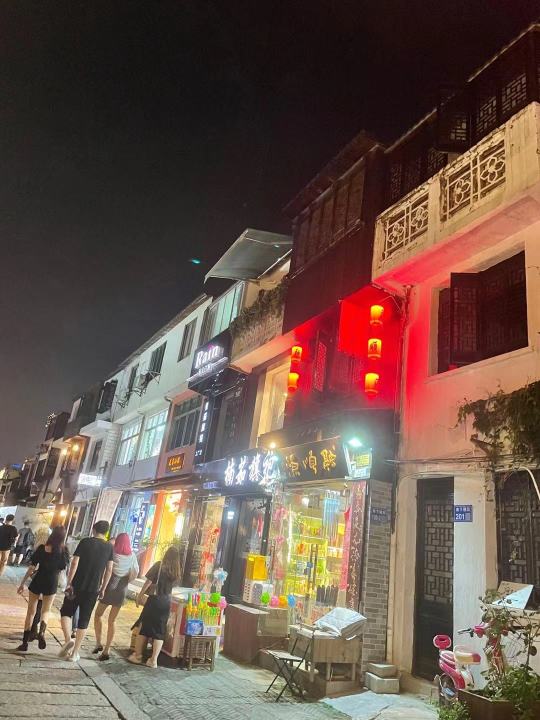
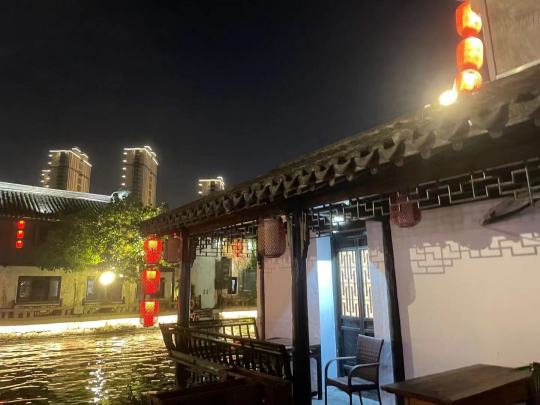
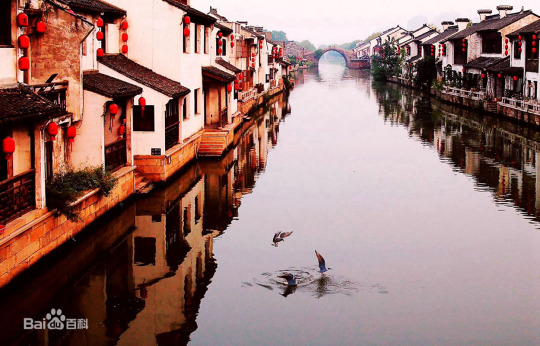
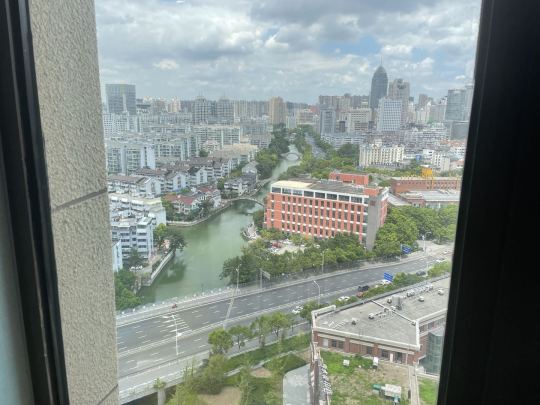
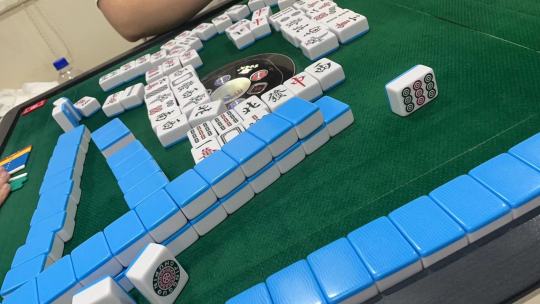
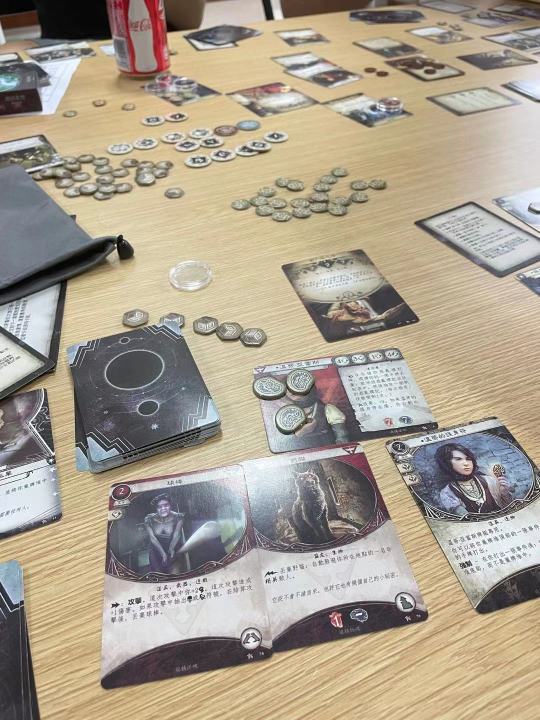
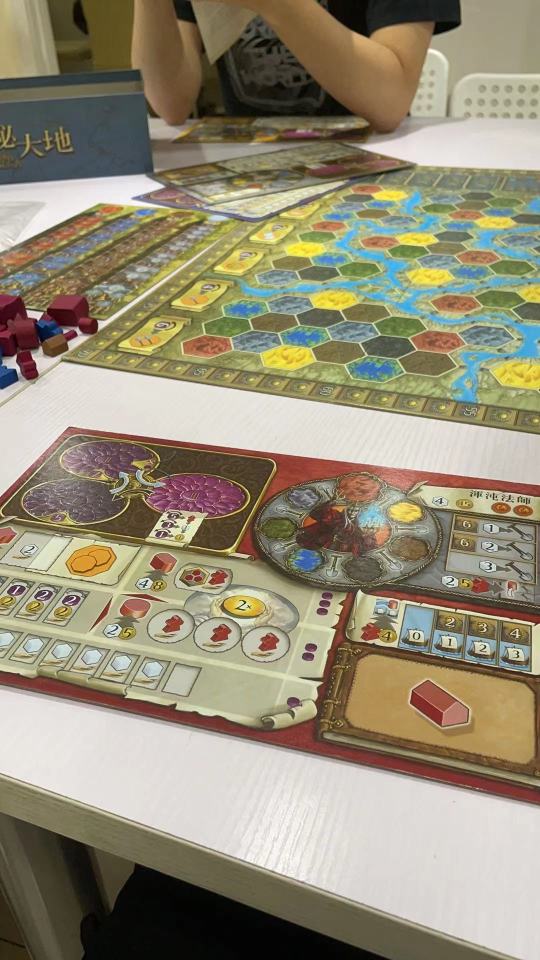
1 note
·
View note
Note
A while back while talking about Sun Luban and Sun Jun, you talked about their "right hand man". What was his name again? I believe he was a Liu?
Liu Cheng [刘丞]. There isn’t much recorded about him, but every mention features him killing someone on behalf of Sun Jun and Sun Luban.
At the end of 253, after Sun Jun assassinated Zhuge Ke, he sent Liu Cheng to pursue Zhuge Ke’s sons (Song and Jian), who were fleeing with their mother. At the time, Liu Cheng held the position of Cavalry Commandant. Liu Cheng caught Zhuge Song at Bodu and killed him. Zhuge Jian got a little farther but was caught and killed after crossing the Yangzi.
Liu Cheng is next mentioned in 256, holding the rank of general. When Lü Ju and Teng Yin plotted against Sun Chen, Liu Cheng was sent to attack Teng Yin at his home. Teng Yin’s household soldiers fought hard, but Liu Cheng overcame them and killed Teng Yin.
By 258, Sun Luban and Sun Chen had turned against each other. Along with Sun Liang and Quan Shang, Liu Cheng was one of Sun Luban’s chief conspirators in her plots against Sun Chen. Liu Cheng was supposed to lead some soldiers in the attack. However, when Sun Chen learned of the plot, he sent his brother Sun En with soldiers to intercept Liu Cheng. The two fought and Liu Cheng was killed near one of the palace gates.
Liu Cheng evidently had an extremely sinister reputation among the Wu court, for when Sun Chen sent a letter to Sun Xiu explaining that Sun Liang had been deposed, one of the charged that Sun Chen listed was associating with Liu Cheng. It was a charge that Sun Chen listed between being frivolous with government funds and gathering women improperly.
This is pretty much everything that’s recorded about Liu Cheng. It isn’t much, but it does present a rather vivid picture of the man.
2 notes
·
View notes
Text
Zodiac: Twelve Souls — 24

< PREV | ARCHIVE | NEXT >
Three-Step Tiger
“I will have to give you something to look at, little hare!”
news
— New translated chapter posted.
— Next update target: October 11, 2022
notes
— Three-step tiger:
From 三步虎 (sān bù hǔ).
Another xiangqi-themed title for this non-player to struggle over!
I, um. I think. That 三步虎 is referring to a methodology wherein a person plays their chariot(s) (車、俥) within the first three moves (三步).
The chariot is apparently one of the strongest pieces in xiangqi, so this would be considered an aggressive way to start the game. The “tiger” (虎) thus refers to the ferocity of the strategy.
— Damn hare:
From 兔崽子 (tù zǎi zi).
Literally, the term refers to young rabbits or hares. Functionally, the term is an insult that often has little to do with actual rabbits. Think of how jackass is used to describe obnoxious and/or awful people, while literally meaning male donkey in English. It’s kind of like that!
— Can’t tell black from white:
Somewhat abbreviated in Wu Bodu’s thought bubble. The original idiom:
bù fēn qīng hóng zào bái
不分青红皂白
Unable to distinguish green from red or black from white
— Dragon:
A slight nuance that gets lost in translation: the word for “dragon” that Ji Shiye recalls is specifically the traditional character for dragon (龍) rather than the simplified form (龙). The word remains in traditional form even within Shiye’s thought bubble (“Dragon”… to what does it refer?).
This is highly unusual. Exposition and dialogue (for both speech and thought) is written in Simplified Chinese in this manhua, even in reference to text written in Traditional Chinese. One related example is in Year of the Dog, when Quan Diyan quotes Shiye’s intercepted message. The image of the fragmented message shows traditional characters in seal script, but Diyan’s mental commentary renders the message in simplified characters.
Another example: names of places. Wanchu City, Qigong Cuisine and Wujian Ridge are all written with traditional characters on official signage, logos, etc. But past the fourth wall, in character dialogue bubbles and location descriptor boxes, these location names are all described in simplified characters.
So why does Shiye’s “dragon” break this rule?
Well, I’m not sure. It might not mean anything. I guess I just think it’s interesting!
< PREV | ARCHIVE | NEXT >
0 notes
Text
Zodiac: Twelve Souls — 5

< PREV | ARCHIVE | NEXT >
Pawn
“Winds.”
news
— New translated chapter posted.
— Next update target: May 17, 2022
notes
— Pawn:
From 棋子 (qí zǐ). Expresses pawn in a figurative sense; i.e., a person used by others. 棋子 can also indicate a literal chess piece, but should not be confused with the pawn chess piece, which is more typically represented by 卒 (zú) or 兵 (bīng). Pawn in English carries a double-meaning that I quite like. To pawn an item is to offer it as a security in exchange for a loan. And while that is… not precisely what happens in the chapter, a transactional atmosphere is still there. Tiantong strikes a bargain with Wu Bodu, using severed hair as proof that he can uphold his end of the deal.
— Wine vessel:
Bodu’s drinking vessel is a 葫芦 (hú lu), a fruit also known as a bottle gourd or calabash. After it is dried and hollowed out, it can be used as a nice container to hold your stuff, whether that stuff be liquor, medicine, crickets, the sound of music, or video content on an American streaming service (not a joke; apparently Hulu’s name is partially based on the Chinese 葫芦). In Chinese culture specifically, 葫芦 is associated with good health and longevity. Li Tieguai, deity figure characterized by alleviating sickness, is practically married to calabash symbolism. Go on: look up any image of the Eight Immortals. Whichever dude is involved with a gourd is almost guaranteed to be Li Tieguai.
For another in-manhua example, you can see a hulu in Year of the Horse. One of the Eight Golden Ones, second one down from the top, can be seen pouring a drink from a gourd into a cup.
— Gen above, gen below:
Gen (艮, gèn) is the mountain trigram (☶). Two gen trigrams stacked on top of each other make a pure gen hexagram (䷳). We last saw this technique in Year of the Rat:
上艮下艮八纯卦
Eight Pure Hexagrams: Mount
定
Bind
—Year of the Rat
Despite differences in translation, the phrasing in Pawn (Chapter 5) is identical save for a single omission of 八纯卦 (Eight Pure Hexagrams):
上艮下艮
Gen above, gen below
定
Bind
—Chapter 5, “Pawn”
I would like to someday make a proper guide to Tiantong’s Bagua techniques, explaining the theory as I tenuously understand it, as well as my dubious translation choices. Someday. Someday!
— One stone, two birds:
From 一石二鸟 (yī shí èr niǎo). Basically a word-for-word translation. Note that this is different from the idiom mentioned in Year of the Ram (一箭双雕 / one arrow, two eagles), but in terms of basic meaning they are largely interchangeable here: accomplishing two tasks with one action.
< PREV | ARCHIVE | NEXT >
0 notes
Photo
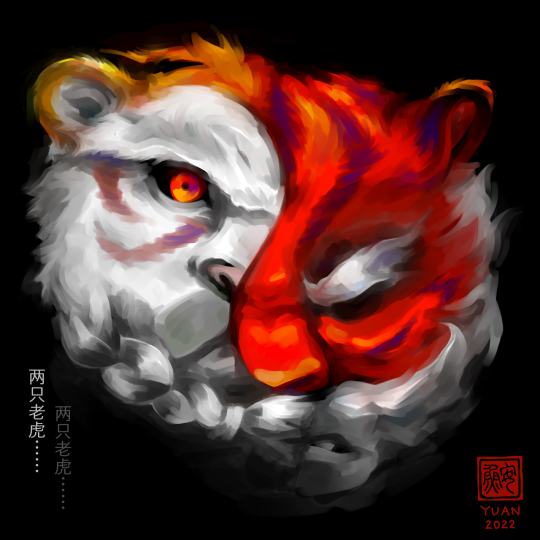
Pair of tigers, pair of tigers...
Fanart for Zodiac: Twelve Souls
Chapter: Year of the Tiger
Happy New Year!
0 notes
Text
Zodiac: Twelve Souls — 0.03

< PREV | ARCHIVE | NEXT >
Year of the Tiger: Defeater of Wu Song
“So long as Wu Song is not eliminated, the Tiger Clan cannot know peace!”
news
— New translated chapter posted.
— Happy Lunar New Year! Happy Year of the Tiger! Did I specifically manipulate my update schedule to enable this happy coincidence? How could you accuse me of such a thing?
— Next update target: February 8, 2022
notes
— Wu Shulin, Wu Hei, Wu Yu:
Respectively, 武树林 (wǔ shù lín), 武黑 (wǔ hēi), 武煜 (wǔ yù). Shulin (树林) means “forest”; Hei (黑) means “black”; Yu (煜) means “bright”.
— “Extra”:
Originally 群演招募. Trying to interpret this phrase destroyed me. I am ash. My best guess is that it describes recruitment for a large group in a performance; e.g., as a background actor in a movie. A movie “extra”, if you will. Please consider this interpretation with heavy skepticism.
— Good-For-Nothing:
From 百无一用. If I were to sketch out a more precise meaning, it would be something like, “out of a hundred qualities, not a single one is useful!”
— Wu Song’s speech:
Uses northern dialect, which is lost in translation. The 俺 (��n) that Wu Song uses as a first-person pronoun is more common in north mainland China. Most of the other tigers in this chapter are shown to use 我 (wǒ), with the exception of Wu Shulin, who also uses 俺.
— Scorn the tortoise if you dare / Pride begets the noble-hare:
These final lines from Wu Bodu allude to the tortoise and the hare from Aesop’s Fables. A nice bit of foreshadowing for the next chapter, Year of the Hare. Original rhyme below, with a slightly more precise translation:
bù róng xiǎo qù guī sūn qiáng
不容小觑龟孙强
One must not belittle the poor tortoise’s strength
jiāo ào zì mǎn biàn tù láng
骄傲自满变兔郎
Pride and self-satisfaction will make one into the hare
< PREV | ARCHIVE | NEXT >
0 notes